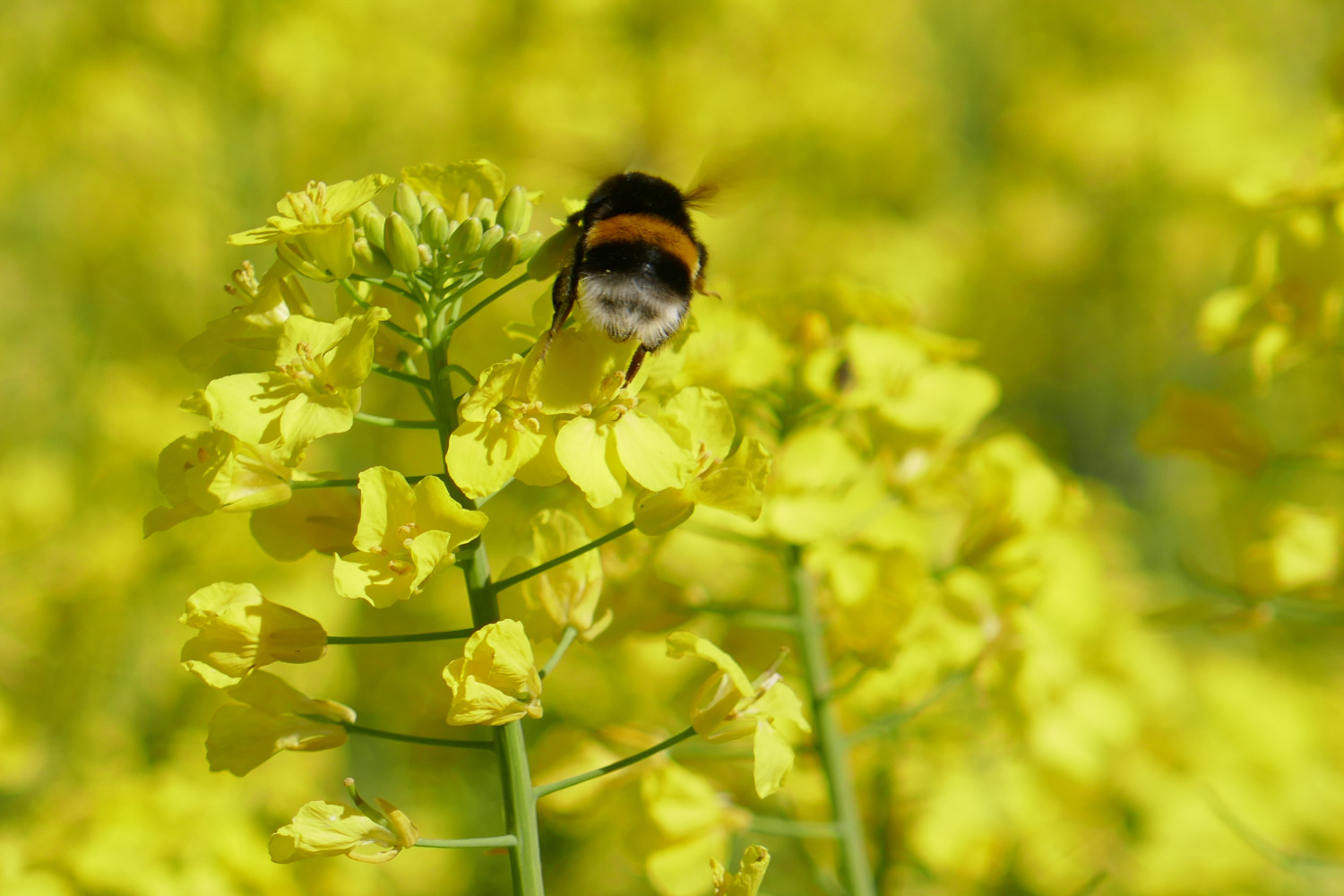Modelling Pollination Services and Insect Populations
Managed and wild bees provide important pollination services for many crops. While the demand for pollination has been increasing, bee abundances have been declining in many areas.
It is important to study how agricultural landscapes affect bee populations and how bees in turn improve the pollination of crops. Understanding these processes in more detail will help us create a win-win situation for farmers and bees. However, it is difficult, time consuming and expensive to do large scale field experiments, as a large number of replicates (colonies) is required over several years and a number of study sites.
A cost-effective alternative is to use computer simulation (in silico) approach where realistic scenarios are simulated using computer models. In this project, we apply and further expand the already existing BEEHAVE models.
These models were developed to study the activities and complex interactions of honeybees and bumblebees within their colonies and the environment. Realistic landscapes, composed of forage patches from a variety of habitat types can be loaded into the models and provide nectar and pollen sources the bees can feed on. Based on the current needs of the colony, location and quality of resources offered, foragers then decide from where to collect the nectar and pollen they need to feed the brood and to reproduce. This virtual world allows us to study the impact of landscape structure on colony and population dynamics of bees and the impact of additional stressors like weather conditions, predators or pesticides. We plan to apply these models to study pollination services and bee populations in agricultural landscapes across Latin America.
